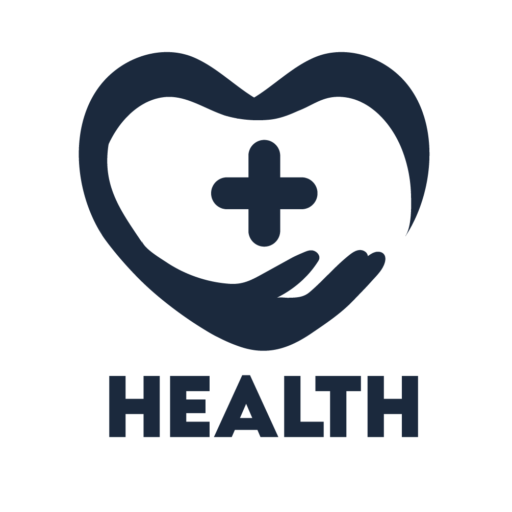Preventive healthcare is the practice of maintaining health and preventing diseases before they start. With growing awareness about the importance of health, individuals and healthcare systems are placing a greater emphasis on preventive measures that not only improve quality of life but also reduce the long-term costs of medical care. Preventive Healthcare Here’s a detailed look at preventive healthcare, exploring why it’s essential, what it involves, and practical steps you can take to implement it in your own life.
1. What Is Preventive Healthcare?
Preventive healthcare refers to medical practices and lifestyle habits that aim to prevent diseases and injuries, rather than treating symptoms after they appear. The goal is to protect, promote, and maintain health through proactive measures.
Types of Preventive Care:
- Primary Prevention: Involves preventing diseases before they occur (e.g., vaccinations, lifestyle modifications).
- Secondary Prevention: Focuses on early disease detection through screenings, allowing for timely intervention.
- Tertiary Prevention: Aims to reduce the impact of ongoing illnesses through effective management (e.g., rehabilitation programs).
2. Importance of Preventive Healthcare
Preventive healthcare has a tremendous impact on individual and public health. It can help reduce the prevalence of chronic diseases, enhance the quality of life, and lower healthcare costs.
Key Benefits:
- Improved Quality of Life: Proactively managing health issues leads to better long-term well-being.
- Reduced Healthcare Costs: Preventing diseases is often more cost-effective than treating them.
- Increased Life Expectancy: Regular preventive measures can prevent life-threatening illnesses.
- Stronger Immunity: Preventive measures, such as vaccinations, strengthen immunity and reduce the spread of infections.
3. Preventive Healthcare Strategies
Preventive healthcare encompasses various strategies designed to maintain health across physical, mental, and social dimensions.
A. Regular Health Screenings
- Routine Check-Ups: Annual or biannual check-ups can identify risk factors or early symptoms of diseases.
- Blood Tests: Routine blood work helps monitor cholesterol, blood sugar, and other health indicators.
- Cancer Screenings: Screenings like mammograms, colonoscopies, and Pap tests can detect cancer early.
B. Vaccinations and Immunizations
- Vaccines are essential to protect against infectious diseases. Recommended vaccines for adults include flu shots, hepatitis, and HPV.
C. Mental Health Maintenance
- Mental Health Check-Ins: Regular mental health evaluations and counseling can identify early signs of conditions like depression and anxiety.
- Stress Management: Techniques such as mindfulness, exercise, and hobbies reduce stress, which is vital for mental and physical health.
D. Lifestyle Modifications
- Diet and Nutrition: A balanced diet with fruits, vegetables, lean proteins, and whole grains supports overall health.
- Regular Exercise: Physical activity lowers the risk of many chronic diseases, strengthens the heart, and improves mental health.
- Adequate Sleep: Quality sleep supports immune function, mental clarity, and emotional resilience.

4. Role of Health Education and Awareness
Promoting preventive healthcare requires education and awareness. People need access to accurate information and resources to understand their health risks and adopt healthier habits.
Educational Tools and Resources:
- Workshops and Seminars: Educational sessions on nutrition, exercise, and stress management can empower people to take control of their health.
- Digital Health Platforms: Online platforms and mobile apps provide resources on disease prevention, healthy habits, and wellness routines.
- Community Programs: Local community programs offer free health screenings, vaccination drives, and mental health workshops.
5. The Importance of Personalized Preventive Care
No two individuals are the same; therefore, preventive healthcare should be personalized based on factors like age, lifestyle, family history, and personal health goals.
Components of Personalized Care:
- Risk Assessment: Identifying personal risk factors, such as family history of disease or lifestyle habits, can guide preventive strategies.
- Customized Wellness Plans: Tailored diet, exercise, and mental health routines create a more effective approach to disease prevention.
- Genetic Testing: For those with a family history of certain illnesses, genetic tests may help guide preventive actions.
6. Preventive Measures Across Life Stages
Preventive healthcare needs change throughout life. Here’s a look at essential preventive strategies for different age groups:
A. Children and Adolescents
- Vaccinations: Childhood immunizations protect against preventable diseases.
- Nutrition Education: Instilling healthy eating habits early promotes lifelong wellness.
- Physical Activity: Encouraging regular exercise helps prevent obesity and builds fitness.
B. Adults
- Screenings and Tests: Regular health screenings help catch diseases like cancer, diabetes, and high blood pressure early.
- Stress and Mental Health: Adults often face stress from work and personal life; mental health practices are crucial.
- Workplace Wellness: Programs and incentives for fitness, healthy eating, and regular breaks support physical and mental health.
C. Older Adults
- Bone Health: Screening for osteoporosis and ensuring adequate calcium and vitamin D intake can reduce fracture risks.
- Cognitive Health: Engaging in mentally stimulating activities, socializing, and regular check-ups can support mental sharpness.
- Chronic Disease Management: Preventing complications through lifestyle adjustments and consistent medication adherence.
7. Challenges in Preventive Healthcare
Despite its importance, preventive healthcare faces several obstacles, including accessibility, affordability, and awareness.
Common Challenges:
- Healthcare Access: Not everyone has easy access to preventive services, such as screenings and vaccinations.
- Cost Barriers: Preventive healthcare can sometimes be costly, deterring people from taking preventive steps.
- Awareness and Education: A lack of understanding of preventive care can lead to underutilization of these services.
8. Emerging Trends in Preventive Healthcare
With advancements in technology and changes in public health approaches, preventive healthcare is evolving.
Key Trends:
- Digital Health Tools: Wearable technology and health-tracking apps provide real-time data for personalized preventive care.
- Telemedicine: Virtual consultations make it easier to access preventive care from anywhere.
- Holistic Approaches: Integrating mental, social, and environmental factors into healthcare models for a comprehensive wellness approach.

9. How to Start Your Preventive Healthcare Journey
- Schedule a Check-Up: Start with a comprehensive health check-up to establish a baseline.
- Set Goals: Establish small, achievable goals for nutrition, exercise, and mental health.
- Educate Yourself: Seek reliable health information to make informed decisions about your well-being.
Conclusion
Preventive healthcare is a proactive approach to maintaining and enhancing health that focuses on avoiding illness before it starts. With the right knowledge, tools, and commitment to wellness, preventive care can lead to a healthier, longer life. By making preventive care a priority, you’re investing in your future and empowering yourself to lead a healthier, more fulfilling life.

